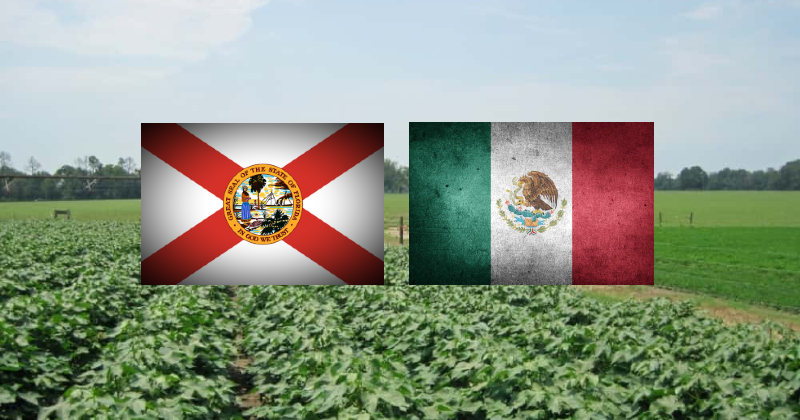This week, members of the Florida delegation sent a letter to U.S. Agriculture Sec. Tom Vilsack to urge the U.S. Department of Agriculture to follow through on its commitment to report on drug smuggling via fruit and vegetable imports from Mexico.
Signers included U.S. Sens. Marco Rubio, R-Fla., and Rick Scott, R-Fla., and U.S. Reps. Gus Bilirakis, R-Fla., Kat Cammack, R-Fla., Mario Diaz-Balart, R-Fla., Byron Donalds, R-Fla., Neal Dunn, R-Fla., Scott Franklin, R-Fla., Carlos Giménez, R-Fla., Al Lawson, D-Fla., Brian Mast, R-Fla., Bill Posey, R-Fla., John Rutherford, R-Fla., Maria Elvira Salazar, R-Fla., Greg Steube, R-Fla., Debbie Wasserman Schultz, D-Fla., and Dan Webster, R-Fla.
The letter is below.
Dear Secretary Vilsack:
We write to request an update on commitments made by the U.S. Department of Agriculture (USDA) in the September 2020 Report on Seasonal and Perishable Products in U.S. Commerce to understand if produce imports enable drug smuggling activity. In this report, a plan was outlined by the Office of the U.S. Trade Representative, the U.S. Department of Commerce and the USDA to support American producers of seasonal and perishable fruits and vegetables. To date, action has been taken on nearly all of these commitments with the exception of action point number five, in which USDA committed to “analyze data on seizures of narcotics to understand if shipments of agricultural products are used to traffic narcotics disproportionately relative to other types of cross-border traffic.”
As you know, drug smuggling in food shipments from Mexico is systemic, and such cases are not isolated incidents. Further, fruit and vegetable growers in Mexico are routinely extorted by drug cartels. In February, we were troubled, but not surprised, to learn that the USDA had to suspend avocado imports from Mexico following a death threat made to a USDA-APHIS inspector. Also in February, the U.S. Customs and Border Protection (CBP) seized $2.9 million of methamphetamines, which were found in a shipment of onions from Mexico. This is just one among many instances of deadly drugs being found in produce shipments from Mexico.
Given these events and the nearly two years that have passed since the September 2020 report, we respectfully ask for an update on commitments made and a report that addresses the following:
• Are agricultural products, specifically Mexican fresh produce, used disproportionately to traffic narcotics into the U.S.?
• What percentage of fresh produce shipments imported from Mexico are inspected for drug trafficking?
• Is this percentage roughly the same for all imported products?
• What percentage of drugs smuggled within fresh produce are successfully intercepted by the CBP compared to what is estimated to actually get through?
• What legal actions does CBP take when drugs are found in an imported shipment?
• What are the consequences for the exporter, shipping company, driver and the importer?
• What occurs to food products in which drug shipments are found?
Are food products implicated in drug smuggling operations from Mexico assumed to be contaminated by drug residues, and destroyed, or are they allowed to reach American grocery stores and be purchased by unsuspecting consumers?
The dire issue of drug smuggling in food is a matter of food safety and security. We urge the USDA to follow through with its commitments to analyze data of seizures of narcotics at the border to understand if produce imports are enabling criminal activity. We look forward to reviewing the Department’s findings.















